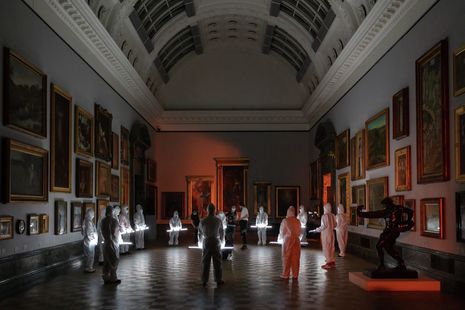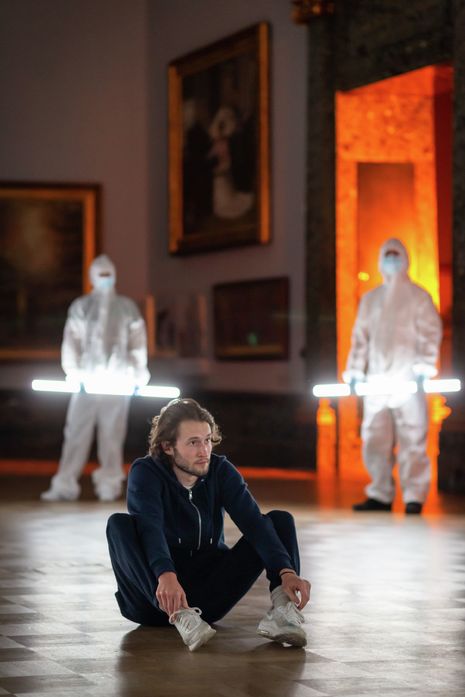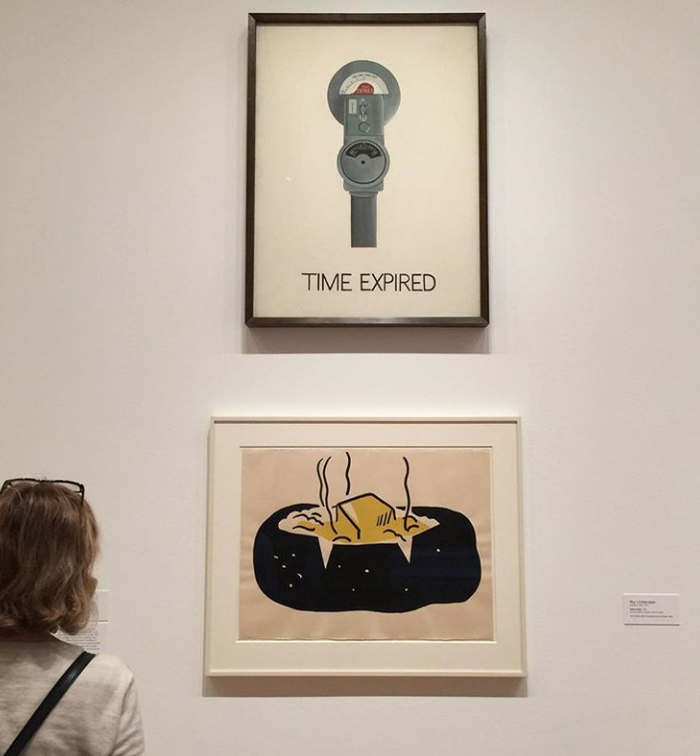Late at Tate Britain: Interview with Kori Humphrys
Zoe Swanwick interviews Kori Humphrys about his work for the Tate Collective, life in lockdown, and the importance of the arts when facing the utterly abnormal

Late at Tate Britain’s Kori Humphrys has been leading an art series looking to explore some of the darker thoughts and feelings that have emerged during the lockdown. Kori, please could you start us off by introducing yourself and what this project is about?
Hello. My name is Kori; I am a lyricist and a filmmaker and Tate Collective Producer. With this Late at Tate Britain event, my aim was to pull back the curtain on lockdown and create a space that for some may be relatable. It’s not a secret that the younger generation often find it hard to talk about subjects such as mental health and state of mind, however, sometimes it also isn’t ideal to force these people to speak. I think it’s important to create as much content and entertainment that addresses these subjects in order to normalise conversations around them.
“My aim was to pull back the curtain on lockdown and create a space that for some may be relatable”
Through collaboration with talented people, we have created a short film, a live performance, some heartfelt discussions with real people and we will be screening three short film submissions, each a unique take on lockdown. The short film immediately immerses us in themes of loneliness, isolation and claustrophobia. My thinking behind this was to jump straight in the deep end. If this film seems in any way emotionally reflective of one’s time in lockdown or general behaviour then great, keep watching, you’re in the right place!
During the pandemic, it seems as if there has been a ‘re-focus’ on the arts and questions around how we value the arts have been brought up. What has COVID-19 highlighted to you about the importance of the arts in society, and especially during this pandemic?
This is a great question. I guess my take on this ‘re-focus’ would be to phrase it more as a ‘re-branding’ which is the distinction between art as a passion and art as a career. If I’m being honest I haven’t actually searched for a job that I will enjoy for over 3 years now. Granted a lot of the reason for this being how hard it is to find employment but another side of me wants to keep my passion alive and not wanting to put a big fat footprint spelling out ‘obligatory’ all over what I actually enjoy doing.

I feel what COVID-19 has done is create a genuine fear that the industry will not be adequately funded. One misses something the most when it is no longer there and we are seeing the prospect of a world without properly funded art projects and institutions. But art will never die. People are still standing and the world is still spinning. Just without money, it’s so much harder. That’s the sad truth.
I would say I feel confident for the art world simply due to the evidence of how many people have been using various mediums to create and explore during their time in lockdown. Rather than the school driven mentality of ‘if you’re good at it then you better do it for the rest of your life’ people are actually creating for the sake of creating. Enjoying the process and not the result and more to the point, benefitting from this process mentally and emotionally.
For you, what has been the most interesting and revealing part of exploring the themes of reflection and lockdown as part of Late at Tate Britain?
I’m going to answer this question in two parts.
[Firstly,] the most interesting part of any process for me is the people and this event is no different. The openness and trust of individuals to tell me their stories or open up about how they can relate to mine creates a fantastic feeling of mutual understanding and appreciation. Building a stronger knowledge of the communities we live in and the perspectives of others and also realising the positivity of so many people refusing to see our circumstance as a negative.
“The short film immediately immerses us in themes of loneliness, isolation and claustrophobia.”
[On the other hand,] the most revealing part would have to focus on two separate groups. This being the stark contrast between the ‘this is a chance to put time into what I love and make something happen’ mentality and the ‘I’ve played so much FIFA bro’ mentality. I see this as more comedic than anything else. Everyone has their own outlets and I’m not one to judge for that. Honestly, as long as you’re taking care of your health, you’re look after the people around you and you’re keeping your head above water, then I think you’re smashing it right now.
What does the event aim to do and how does it fit in with the broader aims or interests of Late at Tate Britain?
This event aims to normalize the still pretty abnormal. COVID-19 has been around for a good while but it really hit in February/March. It’s incredibly rare to experience something such as a virus that is capable of quite literally changing the way we live. I think because of this it’s important to either create spaces where one can ask questions and/or get information, and/or where one can immerse themselves with others who are also experiencing similar emotions.
Late at Tate Britain is an event created with the sole purpose of bringing young people together and not only enabling these young people to create but also providing an occasion in which they can have fun doing so. Now as long as social distancing is taken into consideration and all the rules are abided by, then I think we need online events like these now more than ever.
Late at Tate Britain is delivered by Young People’s Programmes, which is part of the Learning & Research team at Tate. They currently take place online in the third week of the month. You can find a link to the event, which includes the short film Kori is discussing here.
 News / University Council rescinds University Centre membership20 February 2026
News / University Council rescinds University Centre membership20 February 2026 News / Hundreds of Cambridge academics demand vote on fate of vet course20 February 2026
News / Hundreds of Cambridge academics demand vote on fate of vet course20 February 2026 News / Judge Business School advisor resigns over Epstein and Andrew links18 February 2026
News / Judge Business School advisor resigns over Epstein and Andrew links18 February 2026 News / Union cancels event with Sri Lankan politician after Tamil societies express ‘profound outrage’20 February 2026
News / Union cancels event with Sri Lankan politician after Tamil societies express ‘profound outrage’20 February 2026 News / Caius students fail to pass Pride flag proposal20 February 2026
News / Caius students fail to pass Pride flag proposal20 February 2026










